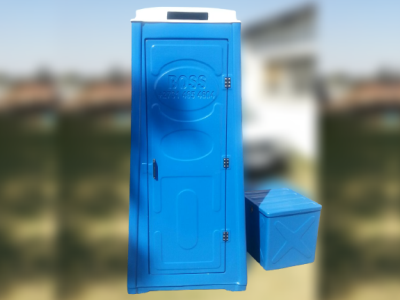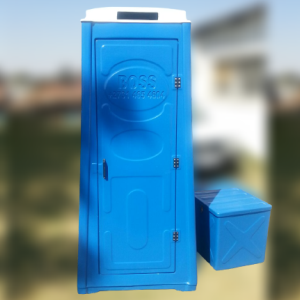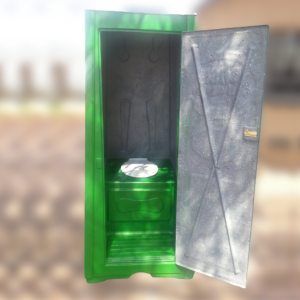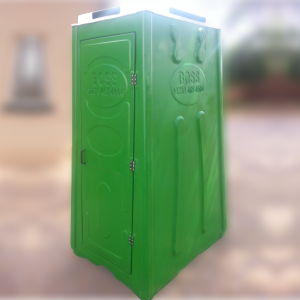The Ultimate Guide to Portable Toilets
Our company manufactures warehouse tents designed for secure and versatile storage. Built with durable, weather-resistant materials, these tents protect goods and equipment in various environments. Ideal for temporary storage, events, or industrial use, our warehouse tents offer spacious interiors and customizable options to meet specific needs. Reliable and strong, they provide the perfect shelter solution for businesses. When planning large outdoor events, construction projects, or disaster relief efforts, portable toilets are an essential consideration for providing hygienic sanitation facilities. These self-contained units offer convenience and cleanliness, ensuring that attendees or workers have access to restrooms when permanent facilities are unavailable. This guide covers the key features, benefits, types, and maintenance of portable toilets, helping you select the right solution for your needs.
What Are Portable Toilets?
Portable toilets, often referred to as porta-potties or portable restrooms, are self-contained restroom units designed for easy transportation and setup. They typically consist of a toilet seat over a waste-holding tank, with an enclosed structure that provides privacy. Initially intended for construction sites and outdoor events, portable toilets are now widely used in various situations, from festivals to emergency response.
Key Features of Portable Toilets
1. Compact and Portable Design: Portable toilets are designed to be lightweight and compact, making them easy to transport and set up in various locations, from rural sites to urban events.
2. Waste Management: Each unit is equipped with a holding tank that collects waste. Many models use a chemical treatment to control odor and facilitate waste breakdown, requiring regular servicing to empty the tanks.
3. Types of Portable Toilets
- Standard Units: Basic models that provide essential restroom facilities without extra amenities.
- Deluxe Units: Include additional features such as hand sanitizers, interior lighting, and mirrors.
- ADA-Compliant Units: Wheelchair-accessible toilets designed with larger interiors and grab bars for individuals with disabilities.
- Luxury Restroom Trailers: Equipped with flushing toilets, running water, and high-end finishes for weddings and upscale events.
4. Ventilation: Most portable toilets feature ventilation systems via roof vents or mesh windows, promoting airflow and reducing odors inside the unit.
5. Hygiene Facilities: Many models come equipped with handwashing stations or additional sanitation supplies to promote hygiene among users.
Benefits of Portable Toilets
- Convenience: Easy to place and remove, offering a temporary solution wherever sanitation needs arise.
- Cost-Effective: Affordable alternatives to permanent restroom facilities, especially for short-term projects or events.
- Flexibility: Suitable for various applications, including construction sites, outdoor events, and disaster recovery efforts.
- Accessibility: Available in various models to accommodate different user requirements, including those with disabilities.
Applications of Portable Toilets
1. Outdoor Events: Portable toilets are ideal for weddings, festivals, and sporting events, providing necessary amenities for attendees.
2. Construction Sites: Essential for workers, portable toilets reduce downtime and maintain productivity by providing convenient access to restroom facilities.
3. Emergency Response: During natural disasters, portable toilets are crucial for providing sanitation to affected populations, ensuring health and hygiene standards are maintained.
4. Camping and Glamping: Portable units enhance the camping experience by offering convenient and hygienic restroom solutions for groups and families.
5. Temporary Commercial Use: Businesses use portable toilets for outdoor markets, pop-up restaurants, and events, ensuring that customer needs are met.
How to Choose the Right Portable Toilet
- Assess Your Needs: Determine how many users will need access to the toilets and for how long to gauge the number of units required.
- Evaluate the Type: Choose from standard, deluxe, ADA-compliant, or luxury options based on the specific needs of your event or project.
- Consider Features: Look for essential features such as hand sanitizers, ventilation systems, and waste management capabilities that align with your needs.
- Check Maintenance Services: Ensure the rental company offers timely servicing to keep the toilets clean and functional during your event.
Maintenance Tips for Portable Toilets
- Regular Service: Schedule consistent cleanings and waste removals, especially during high-traffic events.
- Monitor Supplies: Keep toilet paper and hand sanitizers stocked for user satisfaction.
- Structural Integrity Checks: Periodically verify that the unit is clean, secure, and without any damage.
FAQs
Q1. What is the capacity of a standard portable toilet?
A standard portable toilet can accommodate about 10-15 uses before requiring servicing, depending on usage frequency.
Q2. Are portable toilets environmentally friendly?
Many models utilize eco-friendly chemicals and biodegradable materials, promoting better environmental practices.
Q3. Can portable toilets be used for long-term events?
Yes, with regular service, portable toilets can serve well for extended periods, such as festival events or construction projects.
Q4. Do portable toilets come with handwashing stations?
Some models, especially deluxe units, include integrated handwashing facilities or nearby sanitation stations.
Q5. How are portable toilets transported?
Most rental companies handle transportation, delivering and setting up the units on-site and retrieving them after use.






Reviews
There are no reviews yet.